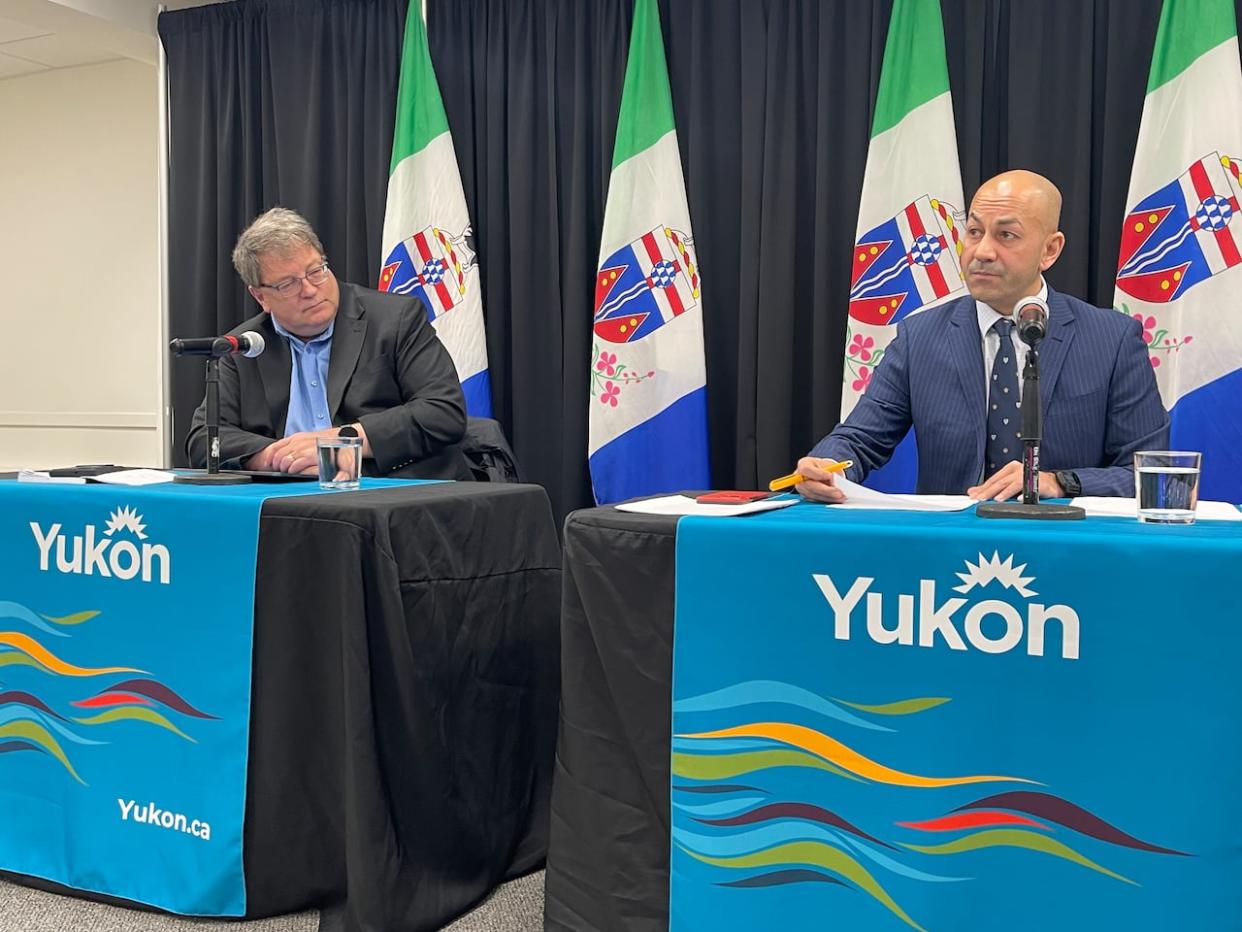Yukon's new Arctic security council to help prepare territory for a changing world

A new expert council will assess risks and provide advice to the Government of Yukon in an effort to ensure the territory's needs are considered in federal decision making about Arctic security.
The Yukon Arctic Security Advisory Council was formally introduced at a media event on Thursday. The territorial government said the council is mandated to "study risks across the Yukon security landscape, determine what assets and infrastructure require additional protection and identify opportunities for the Government of Yukon to work with the Government of Canada to enhance security across the territory."
Yukon Premier Ranj Pillai said the council will develop a report "which will include important context, considerations and recommendations for the Yukon government including both short and long term perspectives."
The report will be released publicly when complete; it's expected by April.
"Do I think we're safe as Canadians right now? Do I think that Canada and the partnership and NORAD is looking after us? Yeah, I do," PIllai said. "Do I think that we are making the appropriate moves at the regional level, or sub-regional level, as a territory in conjunction with Canada? No, I think we're behind."
"I think as Yukoners, and with experts and our council, we have an opportunity to share information and ideas around partnerships with Indigenous governments and opportunities to work with local folks to make sure that we have a longer-term plan."
Council chair Ken Coates — distinguished Fellow and Director of Indigenous Affairs at the Macdonald-Laurier Institute and chair of Yukon University's Indigenous governance program — agreed with Pillai's assessment that Canada is a safe place.
"But the problem with security and defence is, security and defence isn't about today," he said. "It's about how you have to prepare for 15, 20 and 30 years down the line.
"Canadians generally have trouble talking about defence and security," Coates said. "First and Second World War, we were completely unprepared when both those wars broke out. We did not have a good military presence. We weren't ready to go. It took us a long time to ramp it up.
"In this day and age, you don't have a lot of time because the conflict is so different and so much more intense, and it's so much more technological."
The other members of the council are:
Maj.-Gen. (Retired) Derek Joyce, who served in the Canadian Armed Forces for 36 years;
Heather Exner-Pirot, Senior Fellow and director of energy, natural resources and environment at the Macdonald-Laurier Institute, special advisor to the Business Council of Canada and research advisor to the Indigenous Resource Network;
Jennifer Spence, an Arctic Initiative Senior Fellow at the Harvard Kennedy School's Belfer Center for Science and International Affairs, and
P. Whitney Lackenbauer, Canada Research Chair in the Study of the Canadian North and a professor in the School for the Study of Canada at Trent University.
Pillai said the council has a $100,000 budget, which will cover administration fees, and per diems for council members. The council's first meeting was held in November.

 Yahoo News
Yahoo News 
